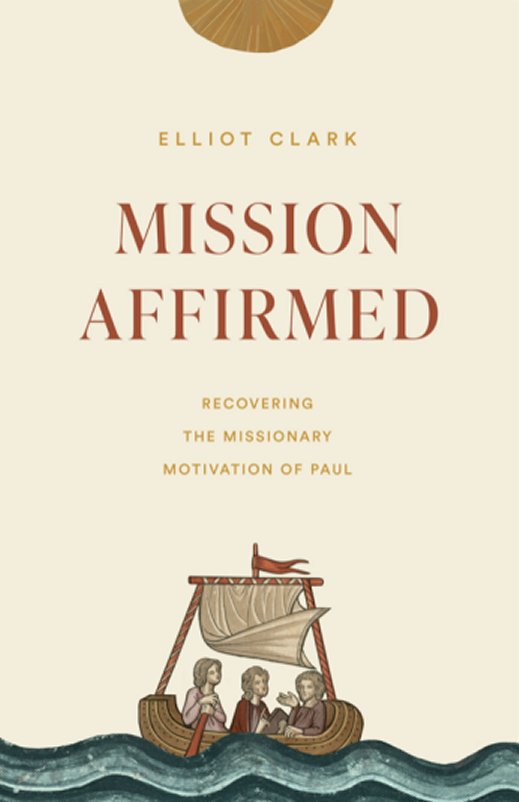Mission Affirmed: Recovering the Missionary Motivation of Paul
Elliot Clark, Crossway, 2022. 253 pages

If you have not read Missions Affirmed, by Elliot Clark, I highly recommend that you put it at the top of your to-do list. Even better, listen to the Audible edition several times as I have done. If the author’s name sounds familiar, you may have also heard of or read his other excellent book, Evangelism as Exiles: Life on Mission as Strangers in our Own Land. Our local library system has both of these books available as audiobooks through the Hoopla app. If you are like me, though, you are going to want to have both in your personal library. Read the book introduction and Chapter 1.
Along with his wife and children, Elliot Clark served in Central Asia as a cross-cultural church planter. He now equips indigenous church leaders overseas and diaspora pastors within the United States with Training Leaders International. He has several excellent blog posts on the TGC website.
In the introduction, Clark reflects on the well-known moment in the Spring of 2003 when President George W. Bush, 30 miles off the coast of California stood on the deck of the USS Abraham Lincoln. Behind him was a massive banner that read, “Mission Accomplished” (21–22). This image stands as a fitting symbol of Western arrogance, resonating profoundly within the context of modern missionary work. Elliott writes, “My concern, and one reason for writing this book, is that we’re living at a time in global missions today when the gospel and faithful ministry are threatened by the tyranny of the urgent. We’re driven by a vision of “Mission Accomplished.” To that end, we’ve often sacrificed the important for the immediate, the best for the most pressing. Over the last few decades, as our focus has been on reaching the unreached and finishing the task, we’ve increasingly prioritized rapid reproduction, with a programmatic and results-driven focus that looks more like Western capitalism and business franchising than genuine Christlike servanthood and faithful stewardship.” The rest of the book makes the case that Paul’s missiology aims at God’s affirmation and building lasting ministries. His goal was “mission affirmed,” not “mission accomplished.” Clark makes his case primarily from two trusted resources. (1) the Apostle Paul and an extensive use of Scripture. The Scripture index in the back is nine pages, double-columned. (2) He also draws from the voices of missionaries from the past: Brainerd, Martyn, Carmichael, Paton, Fraser, Judson, etc.
I especially appreciate the emphasis that the author places on the church. Clark knows his Bible and understands the mission field. He is a student of missions history and his descriptions make the stories come alive. While the book is critical of many of the modern trends in missions, it is mostly a positive hope-filled presentation of what biblical missions should look like.